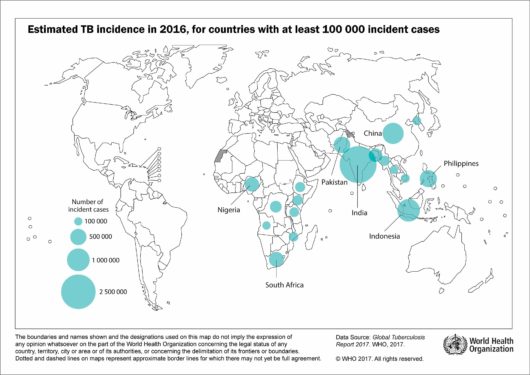In the United States and Europe, not so long ago the words TB were interpreted similarly to the way AIDS and cancer often are today. TB meant fear, suffering and death. And no wonder. This aggressive lung infection caused people to cough up blood, alienate their friends and family over fear of transmission, and ultimately suffocate to death.
But the forgotten fear of yesteryear is deceptive. Today, around the world fully one person in three is infected with TB, 2.3 billion people, making it the world’s most universal infection. And about 10 percent, roughly the population of the United States, will develop the disease badly enough to need treatment. But these afflicted people rarely have access to the treatment resources we enjoy in the United States. Instead, they most commonly live in Africa, Pakistan, India, China, and Indonesia – locales that are broadly under-resourced.
What can be done to combat the ongoing TB epidemic? With today’s current technology, TB can usually be treated with success. But the key is early detection and completion of the prescribed treatment. Lapses in disease reconnaissance and treatment follow up require renewed diligence. New technologies also hold promise, especially for development of more effective TB vaccines. Let’s actively cheer on those leading the charge against our world’s most deadly and universal infection!

